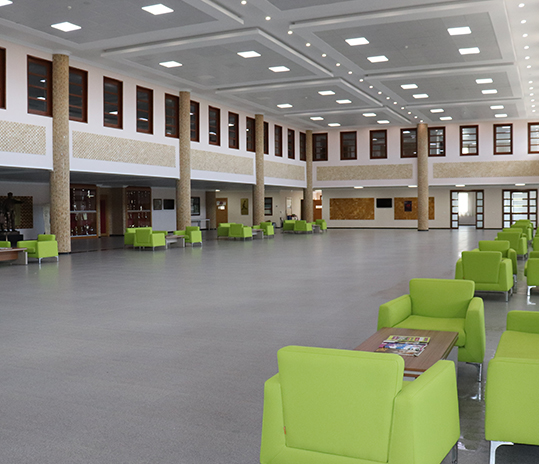Bodrum Marmara Secondary School
Our Education Model

The education model of a well-established educational institution such as Marmara College is an approach that supports the development of students in all aspects and prepares them for both academic and social life.
1. Holistic Education Approach
- Academic and Social Integration: An education model that supports the development of both academic and social skills is preferred. In other words, students are strengthened in social skills such as creative thinking, communication skills, problem solving and self-management, in addition to subject knowledge.
- Psychological Support and Guidance: Guidance and psychological support is provided for students' personal development and their needs and problems are closely monitored. In addition, studies are carried out to support students' academic development. Career planning is supported.
2. Focus on Individual Development is supported.
- Personalized Education: Personalized education methods are developed to address the different learning styles of students. Each student is supported with a unique learning pace and method. For this purpose, a study is conducted at the beginning of each academic year under the leadership of the Guidance Service. The data obtained as a result of the study is shared with the relevant teachers to support students' individual learning.
- Interactive Learning Environments: Project-based and teamwork-based educational activities in which students actively participate. Cooperation is made with national and international institutions, associations and schools.
3. Technology Integration
- Digital and Innovative Educational Materials: Methods that integrate technology into education are used. Digital resources such as smart boards, online learning tools, simulations and virtual reality make lessons more interesting.
- Coding and Digital Literacy: Technology and digital skills that will be needed in the world of the future (coding, data analysis, media literacy, etc.) are included in the curriculum.
4. Interdisciplinary Approach
- Developing Students' Critical Thinking Skills: Through interdisciplinary projects and courses, students are provided with the ability to gain knowledge in different fields and to associate this knowledge. For this purpose, horizontal and vertical meetings are held at the beginning of the year to create the integrity of the process. Horizontal and vertical meetings are held at the beginning of the second semester to check the appropriateness of the work done for the purpose. At the end of the year meetings, a year is evaluated and the measures that can be taken are determined.
- Integrating Science and Art: An integrated approach to STEM (Science, Technology, Engineering and Mathematics) and the arts strengthens students' capacity for creative thinking.
5. Foreign Language Education
- Language Education at an Early Age: In order to provide a global perspective, English is taught from an early age and an advanced language level is targeted. By the time the student graduates, they are expected to be at C1 level. At the same time, international foreign language exams such as Cambridge and IELTS are administered within the school, enabling students to certify their language level on an international platform. At the 9-10th grade level, students are divided into classes according to their language level.
- Dual Language Opportunity: In addition to English, you have the option to learn a second foreign language (German-French). Language education is designed to provide cultural awareness.
6. Values and Social Responsibility Education
- Ethical and Responsibility Awareness: Students are raised with ethical values and social responsibility awareness, and are given the responsibility to contribute to society.
- Environmental Awareness: Activities are organized to raise awareness about environmental awareness and sustainability. A planned work is carried out at school for this purpose.
7. Sports and Art Activities
- Encouragement in Arts and Sports: Arts and sports have a strong place in education and students' artistic and sporting talents are supported. Students actively participate in artistic fields such as painting, music and dance and have the opportunity to express themselves.
- Sports Activities: Sports activities that promote a healthy lifestyle and in which every student can participate should be organized and encouraged. The school offers many and varied opportunities to its students. Students are encouraged to use these opportunities.
8. Parent Communication and Cooperation
- Open Communication Channels: Regular communication is ensured with parents, and they are regularly informed about their children's development. The school conducts effective activities in this regard. Interviews are conducted by appointment system.
- Family Trainings: Seminars and workshops for parents contribute to the development of children. Informative seminars and workshops are organized in accordance with the age levels of the students and the conditions of the day.
This model ensures that students grow up as individuals equipped with knowledge, skills and values in accordance with Marmara College's understanding of education, and prepares them for the future with a strong foundation by ensuring that they are sought-after young people, not job seekers.
